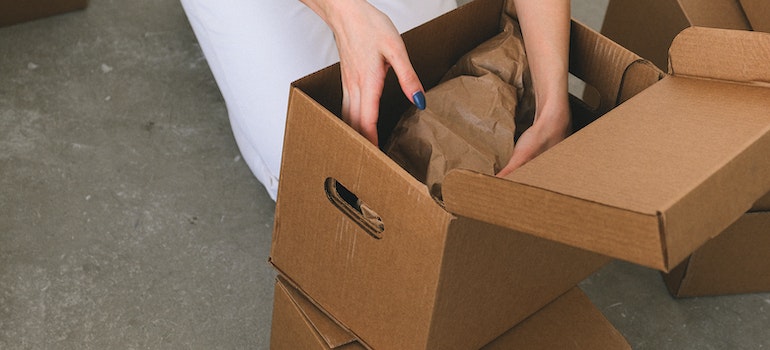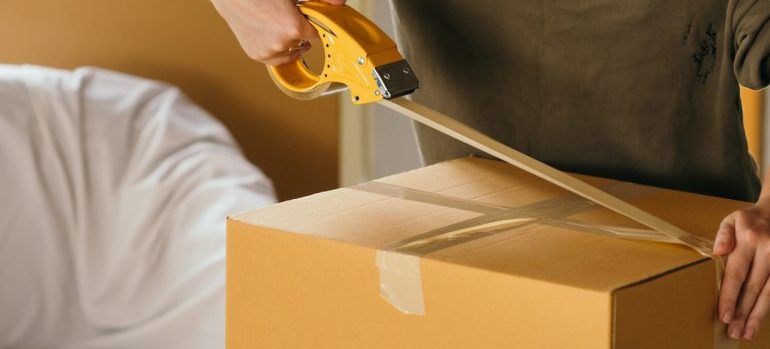Strategies for a Zero-Waste Relocation
In Seattle, where sustainability is woven into daily life, moving presents a unique challenge: how to transition homes without adding to landfill waste. While relocations are often necessary, it’s also a time when waste generation can easily spiral out of control. For Seattleites—and all those joining the community—embracing a zero-waste approach during relocation isn’t just environmentally responsible; it’s a natural extension of the city’s values. So, let’s explore what zero-waste relocation looks like in practice and how you can ensure your move with Seattle movers contributes to the solution, not the problem.
What Is Zero Waste, and Why Does It Matter During Moving?
Zero waste is more than a buzzword—it’s a philosophy centered on minimizing waste by rethinking how we consume, reuse, and dispose of materials. The goal is simple yet ambitious: to divert as much as possible from landfills and incinerators, preserving resources and reducing pollution at every stage.
During a move, the principles of zero waste become especially relevant. Moving often triggers an overwhelming cycle of discarding, packing, and unpacking, with countless items ending up in the trash—many of which could have been reused, recycled, or repurposed. In the U.S., 40% of landfill waste is estimated to come from items that could have been reused or recycled, including furniture, clothing, and household goods.
In essence, zero-waste relocation challenges the “throwaway” culture and invites us to approach transitions with intention, ensuring that what we no longer need finds a meaningful purpose rather than becoming part of the problem.

How to Plan for a Zero-Waste Move
Moving zero-waste starts with intentional planning. The more organized you are, the less likely you are to rely on wasteful, last-minute solutions. Begin by assessing everything you own. Take stock of what’s coming with you, what can be reused, and what’s ready for a new home elsewhere.
Think about the resources you’ll need during the move itself. Can you borrow reusable packing materials, such as bins or crates, from friends or neighbors? Check if local services in Seattle offer rentable moving boxes or eco-friendly packing supplies. Planning allows you to avoid single-use cardboard boxes or plastic wrap, which often end up in the trash.
As you prepare, consider the environmental impact of transportation. If possible, consolidate trips to reduce fuel usage and emissions. Pack strategically to maximize space in your moving vehicle, ensuring fewer trips and less waste. Finally, communicate your goals with everyone involved in the move, including family members, friends, or professional Washington movers. When everyone is on the same page, it’s easier to stick to your zero-waste plan.
Decluttering Without Creating Waste
Decluttering is a critical step in any move, but doing it responsibly can help keep unnecessary waste out of landfills. This process isn’t just about getting rid of what you don’t need—it’s about making sure those items are reused or recycled wherever possible.
To start, sort your belongings into categories like keep, donate, sell, recycle, or repurpose. Having clear categories makes the process more manageable and helps ensure that nothing is discarded unnecessarily. Here are five key strategies to declutter without waste:
- Donate What You Don’t Need: Seattle has plenty of donation options for items in good condition. From charities like Goodwill and Habitat for Humanity to smaller community thrift shops, your unused goods can find new homes.
- Sell Valuable Items: Platforms like OfferUp, Craigslist, and Facebook Marketplace are great for selling furniture, electronics, and other valuables. This gives your items a second life while putting some money back in your pocket.
- Recycle Responsibly: Research Seattle’s recycling guidelines for materials like electronics, textiles, and batteries. Specialized centers like Recology accept a wide range of items.
- Use Local Sharing Groups: Join Buy Nothing groups or neighborhood forums to give items away for free. This is especially effective for household goods and gently used clothing.
- Get Creative with Repurposing: Before tossing items, think about how they can be reused. Old jars can become storage containers, and worn-out linens can be cut into cleaning rags.
These strategies will help you declutter and also ensure your unwanted items find meaningful new uses, from supporting local charities to helping neighbors through community sharing programs. Hence, each decision you make to donate, sell, or recycle keeps valuable resources in circulation and aligns your move with Seattle’s sustainability goals.
Eco-Friendly Packing That Works
Packing for a move often involves mountains of materials, much of which gets thrown away after a single use. Moreover, rethinking your packing approach drastically cuts down on waste. So, start by sourcing reusable or recyclable moving boxes in Seattle. Rent plastic bins from local services, or borrow storage totes from friends and neighbors. Reusable options are sturdier than cardboard and can be returned or reused long after the move.
For wrapping and cushioning fragile items, skip traditional packing paper and bubble wrap. Instead, use what you already have:
- Wrap dishes in towels, blankets, or even clothing.
- Use old newspapers or shredded documents to fill empty spaces in boxes.
- Cushion delicate items with reusable cloth bags or scarves.
- Label boxes clearly to ensure they can be reused after the move. Write directly on tape or use removable stickers to avoid ruining the boxes themselves.
Lastly, avoid plastic tape whenever possible. Opt for biodegradable packing tape or reusable straps to secure your boxes. This small change makes a big difference, as traditional tape often contaminates recycling streams.

Making Transportation Smarter and Less Wasteful
The way you transport your belongings during a move plays a significant role in your environmental impact. Reducing trips, optimizing space, and choosing eco-friendly practices can make a move far more efficient and sustainable.
Start by planning the most efficient route between your old and new homes. In a city like Seattle, where traffic and emissions are ongoing concerns, taking the shortest, least congested path can save time and fuel. If you’re hiring long-distance movers in Seattle, inquire about their practices. While not all companies are explicitly “green,” some may offer options like larger trucks to reduce trips or hybrid vehicles to lower emissions.
Pack strategically to maximize space in your vehicle. Use sturdy, stackable containers that allow for efficient loading. Avoid leaving gaps in boxes or between items, as wasted space leads to more trips. If you’re moving with others, coordinate schedules to share transportation and consolidate efforts.
Ultimately, consider offsetting the carbon emissions from your move. Several organizations offer programs to balance emissions by investing in renewable energy or reforestation projects. It’s a simple way to ensure your move has a smaller footprint.
Solving the Tricky Parts of a Zero-Waste Relocation
Even the most organized moves come with unique challenges, and some of these can create unexpected waste if not handled carefully. With a bit of creativity and foresight, you can handle these hurdles while staying true to your zero-waste goals.
Food Waste
Perishable items often get overlooked in the chaos of packing. Plan meals in the weeks leading up to your move to use up what’s in your fridge and pantry. For non-perishables you can’t take, donate to a local food bank. Organizations like Move For Hunger make it easy to pass along surplus items.
Oversized or Bulky Items
Furniture and appliances can be tough to move sustainably. If they no longer fit your needs, sell or donate them instead of sending them to the landfill. Many organizations in Seattle, including Habitat for Humanity’s ReStore, offer free pickup for large donations. Alternatively, connect with local repair shops or refurbishers who can give these items a second life.

Hazardous Materials
Cleaning supplies, paint, and batteries require special disposal. Seattle offers hazardous waste collection sites where these items can be safely recycled or processed. Avoid tossing them in the trash, where they can harm the environment. Inevitably, there will be things you can’t pack until the final hours. Designate a box for essentials that you’ll need immediately upon arrival, using reusable bags or containers to avoid disposable materials.
Starting Fresh with Zero-Waste Habits
A well-organized move with HB move management is a chance to rethink the way you live, and your new home can be the perfect place to build lasting zero-waste routines. Setting up systems from the beginning makes it easier to maintain sustainable practices in the long run.
Reuse as Much as Possible
The boxes, bins, and packing materials from your move can be repurposed for storage or shared with neighbors through community forums like Buy Nothing groups. If you have materials you no longer need, research local recycling centers or donation programs to ensure they’re disposed of responsibly.
Organize Your Home With Zero-waste Principles in Mind
Set up designated areas for recycling, composting, and donations. Seattle’s curbside composting program makes it simple to divert food scraps and organic waste from landfills. Familiarize yourself with the city’s recycling guidelines to avoid contamination and maximize your efforts.
As you unpack, take note of anything that feels excessive or unnecessary. Rather than immediately replacing items, take time to explore second-hand options or borrow what you need. This mindset helps reduce consumption and keeps your new home clutter-free.
Keep the Momentum Going
Stay connected to Seattle’s zero-waste community! Attend local workshops, join online groups, or engage in neighborhood swaps. These connections can inspire fresh ideas and help you stay committed to living sustainably.
Starting with zero-waste systems ensures your home operates efficiently and sustainably from day one. Composting bins manage food scraps, recycling stations keep materials out of landfills, and donation areas simplify the process of passing on unused items. These practical solutions reduce waste while directly supporting Seattle’s environmental goals.

Building Connections Through Zero-Waste Practices
A zero-waste relocation opens the door to meaningful connections with your community. Seattle offers countless opportunities to share resources, exchange ideas, and inspire others to embrace sustainability.
Try using local platforms like Buy Nothing groups, Nextdoor, or neighborhood forums to trade or borrow items. These networks keep materials circulating and reduce the need for new purchases. For example, pass along extra packing supplies or find reusable moving boxes instead of buying new ones.
Also, you may ask neighbors or local organizations for advice. Many Seattleites already practice zero-waste living and can guide you toward reliable donation centers, recycling programs, or repair shops. Sharing your own zero-waste strategies can spark interest and motivate others to adopt similar habits.
Welcome friends or neighbors to assist as you unpack and set up your new space. Their support creates opportunities to build stronger connections while ensuring reusable materials find continued purpose instead of ending up as waste.
Create a Zero-Waste Legacy Through Your Move
A zero-waste move empowers you to reduce waste, conserve resources, and set an example for others utilizing moving services in Seattle. Every action—whether planning, decluttering, packing, or sharing—makes an immediate impact on your household and the environment.
Carry the momentum forward by establishing sustainable habits in your new home. Set up composting and recycling systems, support local donation networks, and continue reusing and repurposing materials. Your choices during the move can inspire others and strengthen Seattle’s commitment to sustainability.
Moving marks a new beginning, and a zero-waste relocation ensures you write your new chapter responsibly. Choose to make every box packed, item donated, or material reused a step toward a cleaner, more sustainable future.
Why Choose Us
History
Hansen Bros. Moving & Storage is locally owned and operated by the same family for four generations, since 1890. We have a well-established reputation for service quality and reliability with a high percentage of repeat household and commercial clients.
Professionalism
We’re a certified ProMover by the American Moving and Storage Association with A+ rating with the Better Business Bureau, voted “Best in Western Washington” in 2009 and from 2011 to 2016 by KING5. Our company is fully licensed and insured and member of WMC and AMSA.
Value
Hansen Bros. Moving & Storage provide free, no-obligation in-home estimate and competitive rates, including low minimum rates for shipments moving under 300 miles. We’ve set a refund policy for unused packing materials and three Puget Sound locations to help clients save on travel fee costs.



